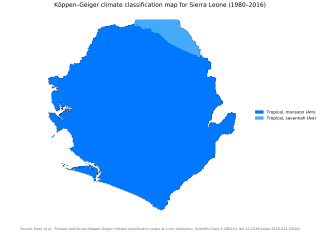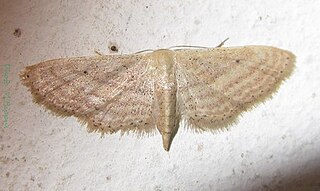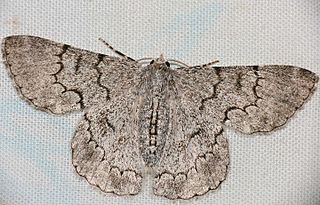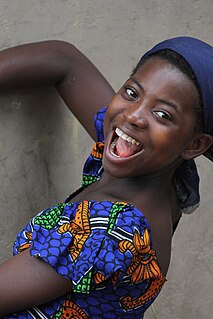| Leucoma luteipes | |
|---|---|
 | |
| Scientific classification | |
| Kingdom: | Animalia |
| Phylum: | Arthropoda |
| Class: | Insecta |
| Order: | Lepidoptera |
| Superfamily: | Noctuoidea |
| Family: | Erebidae |
| Genus: | Leucoma |
| Species: | L. luteipes |
| Binomial name | |
| Leucoma luteipes (Walker, 1855) | |
| Synonyms | |
| |
| Leucoma luteipes | |
|---|---|
 | |
| Scientific classification | |
| Kingdom: | Animalia |
| Phylum: | Arthropoda |
| Class: | Insecta |
| Order: | Lepidoptera |
| Superfamily: | Noctuoidea |
| Family: | Erebidae |
| Genus: | Leucoma |
| Species: | L. luteipes |
| Binomial name | |
| Leucoma luteipes (Walker, 1855) | |
| Synonyms | |
| |
This species is found in Angola, Cameroon, Congo, Equatorial Guinea, Gabon, Nigeria and Sierra Leone. [1] [2]

Sierra Leone, officially the Republic of Sierra Leone, informally Salone, is a country on the southwest coast of West Africa. It is bordered by Liberia to the southeast and Guinea to the northeast. Sierra Leone has a tropical climate with a diverse environment ranging from savanna to rainforests, a total area of 71,740 km2 (27,699 sq mi) and a population of 7,092,113 as of the 2015 census. The capital and largest city is Freetown. The country is divided into five administrative regions which are subdivided into sixteen districts. Sierra Leone is a Constitutional Republic with a unicameral parliament, and a directly elected president.

Sierra Leone is located on the west coast of Africa, between the 7th and 10th parallels north of the equator. Sierra Leone is bordered by Guinea to the north and northeast, Liberia to the south and southeast, and the Atlantic Ocean to the west.

The Republic of Sierra Leone Armed Forces (RSLAF) is the armed forces of Sierra Leone, responsible for the territorial security of Sierra Leone's border and defending the national interests of Sierra Leone, within the framework of its international obligations. The armed forces were formed after independence in 1961, on the basis of elements of the former British Royal West African Frontier Force, then present in the country. The Sierra Leone Armed Forces currently consist of around 13,000 personnel.

Freetown is the capital and largest city of Sierra Leone. It is a major port city on the Atlantic Ocean and is located in the Western Area of the country. Freetown is Sierra Leone's major urban, economic, financial, cultural, educational and political centre, as it is the seat of the Government of Sierra Leone. The population of Freetown was 1,055,964 at the 2015 census.

The United Nations Mission in Sierra Leone (UNAMSIL) was a United Nations peacekeeping operation in Sierra Leone from 1999 to 2006. It was created by the United Nations Security Council in October 1999 to help with the implementation of the Lomé Peace Accord, an agreement intended to end the Sierra Leonean civil war. UNAMSIL expanded in size several times in 2000 and 2001. It concluded its mandate at the end of 2005, the Security Council having declared that its mission was complete.

Julius Maada Bio is a Sierra Leonean politician, and the current president of Sierra Leone since April 4, 2018. He is a retired Brigadier General in the Sierra Leone Army and was the military Head of State of Sierra Leone from January 16, 1996, to March 29, 1996 in a military Junta government. As the candidate of the main opposition Sierra Leone People's Party, Bio defeated Samura Kamara of the ruling All People's Congress in the runoff vote of the 2018 Sierra Leone presidential election with 51.8% of the votes to Kamara"s 48.2%. International and local observers declared the election free, fair and credible. Bio succeeded Ernest Bai Koroma as president. As the main opposition leader, Bio was a critic of his predecessor president Ernest Bai Koroma and his administration. As president, Bio has overturned most of the policies of Ernest Bai Koroma, whom he accuses of corruption.

The Sierra Leone Civil War (1991–2002) was a civil war in Sierra Leone that began on 23 March 1991 when the Revolutionary United Front (RUF), with support from the special forces of Charles Taylor’s National Patriotic Front of Liberia (NPFL), intervened in Sierra Leone in an attempt to overthrow the Joseph Momoh government. The resulting civil war lasted 11 years, enveloped the country, and left over 50,000 dead.

The Special Court for Sierra Leone, or the "Special Court" (SCSL), also called the Sierra Leone Tribunal, was a judicial body set up by the government of Sierra Leone and the United Nations to "prosecute persons who bear the greatest responsibility for serious violations of international humanitarian law and Sierra Leonean law" committed in Sierra Leone after 30 November 1996 and during the Sierra Leone Civil War. The court's working language was English. The court listed offices in Freetown, The Hague, and New York City.

Fourah Bay College is a public university in the neighbourhood of Mount Aureol in Freetown, Sierra Leone. Founded on 18 February 1827, it is the first western-style university built in West Africa. It is a constituent college of the University of Sierra Leone (USL) and was formerly affiliated with Durham University (1876–1967).

Education in Sierra Leone is legally required for all children for six years at primary level and three years in junior secondary education, but a shortage of schools and teachers has made implementation impossible. The Sierra Leone Civil War resulted in the destruction of 1,270 primary schools and in 2001 67 percent of all school-age children were out of school. The situation has improved considerably since then with primary school enrollment doubling between 2001 and 2005 and the reconstruction of many schools since the end of the war. However, there is still a long ways to go. In 2004, Junior secondary school enrollment was only 17% of primary school enrollment, and senior secondary school enrollment was only 8% of primary school education.

United Nations Security Council resolution 1470, adopted unanimously on 28 March 2003, after recalling all previous resolutions on the situation in Sierra Leone, the Council extended the mandate of the United Nations Mission in Sierra Leone (UNAMSIL) for six months until 30 September 2003.

Scopula serena is a moth of the family Geometridae. It is found in Africa south of the Sahara, from Sierra Leone to Tanzania and to South Africa, as well as on the Indian Ocean islands

Cartaletis gracilis is a moth of the family Geometridae first described by Heinrich Benno Möschler in 1887. It is found in Cameroon, the Democratic Republic of the Congo, Ghana and Sierra Leone.
Scopula inscriptata is a moth of the family Geometridae. It is found in Nigeria, Sierra Leone and South Africa.

Pingasa rhadamaria is a moth of the family Geometridae first described by Achille Guenée in 1858. It is found on the Comoros, Madagascar and São Tomé and Príncipe and in Sierra Leone, South Africa, the Gambia, Zimbabwe, Cameroon, Ghana, Ethiopia, Kenya, Tanzania and Zambia.

Sierra Leone, officially the Republic of Sierra Leone, is a Constitutional Republic in West Africa. Since it was founded in 1787, the women in Sierra Leone have been a major influence in the political and economic development of the nation.
The following is a timeline of the history of the city of Freetown, Sierra Leone.
Cannabis in Sierra Leone is illegal, but is widely cultivated and consumed in the country, and exported to neighboring countries and to Europe. Cannabis is known locally as diamba.

Corruption is endemic in Sierra Leone. Transparency International's Corruption Perception Index has ranked Sierra Leone 119th out of 179 total countries The 2018 Global Competitiveness Report ranked Sierra Leone 109th out of 140 countries for Incidence of Corruption, with country 140 having the highest incidence of corruption. Corruption is prevalent in many aspects of society in Sierra Leone, especially in the aftermath of the Sierra Leone Civil War. The illicit trade in conflict diamonds funded the rebel Revolutionary United Front (RUF) forces during the civil war, leading to fighting between the Sierra Leone Army and the RUF for control of the diamond mines. Widespread corruption in the health care sector has limited access to medical care, with health care workers often dependent on receiving bribes to supplement their low pay.

Sierra Leone–Turkey relations are the foreign relations between Sierra Leone and Turkey. Turkey has an embassy in Freetown since February 2018 and Sierra Leone has an embassy in Ankara since January 2020.
|journal= (help)| This article on a moth of the subfamily Lymantriinae is a stub. You can help Wikipedia by expanding it. |